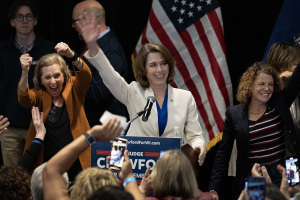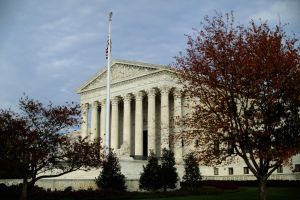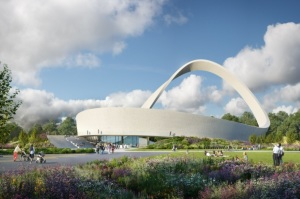Religious Groups Back David Cameron's Claim That Britain Is a 'Christian Nation'
A number of religious groups have backed British Prime Minister David Cameron's claims that Britain is a "Christian nation" after a group of U.K. intellectuals argued in a letter that such views cause division and harm in society.
Christina Rees, a member of the General Synod, the highest governing body of the Church of England, said she was glad that Cameron had the "confidence" to talk about his faith, and pointed out that the U.K. had "historically and culturally" been a Christian country for "many hundreds of years," according to BBC News.
Muslim Council of Britain Secretary General Farooq Murad said that no one could that deny that the U.K. remains a Christian country.
"A sense of the sacred is to be cherished," Murad said, suggesting that the U.K. could benefit from "recognizing and celebrating" people of multiple faiths and of no faith "living in harmony."
Anil Bhanot, managing director of Hindu Council U.K., also said that he was "very comfortable" with the U.K. being described as a Christian country.
"People can secularize those traditions but it doesn't take away from the fact that the country was based in Christian traditions," he said about Easter and Christmas.
Last week, Cameron called on Christians to be "more evangelical" about their faith and to "get out there and make a difference to people's lives."
"I have felt at first hand the healing power of the Church's pastoral care, and my children benefit from the work of a superb team in an excellent Church of England school," the British PM said, ahead of Easter.
He clarified, however, that Britain being a "Christian country" did not mean "doing down" other religions or "passing judgment" on those with no faith at all.
A number of British public figures and intellectuals, including authors Sir Terry Pratchett and Philip Pullman, wrote in an open letter published by The Telegraph on Monday that they object to such a description of the U.K., however.
"Apart from in the narrow constitutional sense that we continue to have an established Church, Britain is not a 'Christian country.' Repeated surveys, polls and studies show that most of us as individuals are not Christian in our beliefs or our religious identities," they wrote in a letter.
"At a social level, Britain has been shaped for the better by many pre-Christian, non-Christian, and post-Christian forces. We are a plural society with citizens with a range of perspectives, and we are a largely non-religious society."
They insisted that Cameron's claims contribute to fostering "alienation and division in our society."
"Although it is right to recognize the contribution made by many Christians to social action, it is wrong to try to exceptionalize their contribution when it is equaled by British people of different beliefs," they continued.
"This needlessly fuels enervating sectarian debates that are by and large absent from the lives of most British people, who do not want religions or religious identities to be actively prioritised by their elected government."
According to the CIA World Factbook, based on 2011 statistics, Christians make up around 59.5 percent of the U.K. population. Those with no religion make up 25.7 percent of the population.
Cameron has often spoken about his Christian faith. Last week, he urged Britons to stand up against the global persecution of Christians and other religious groups.
"I hope we can do more to raise the profile of the persecution of Christians around the world," Cameron said at his Easter reception at Downing Street. "It is the case today that our religion is now the most persecuted religion around the world. I think Britain can play a leading role in this."
The PM has not always seen eye-to-eye with the Church of England, however, particularly when it comes to the issue of same-sex marriage and his support for the bill which led to the legalization of the practice in Britain in March.
In April 2012, Cameron pleaded for Christians to support him despite his support for changing the traditional definition of marriage.
"I hope we won't fall out too much over gay marriage," he said during an Easter service at the time, insisting that the government is changing only the register office, and not how the church operates. "There'll be some strong arguments and some strong words."





























